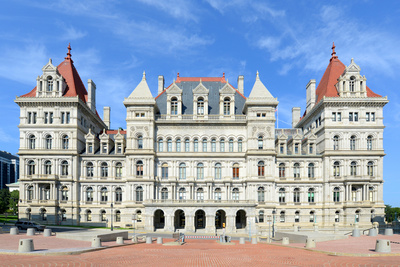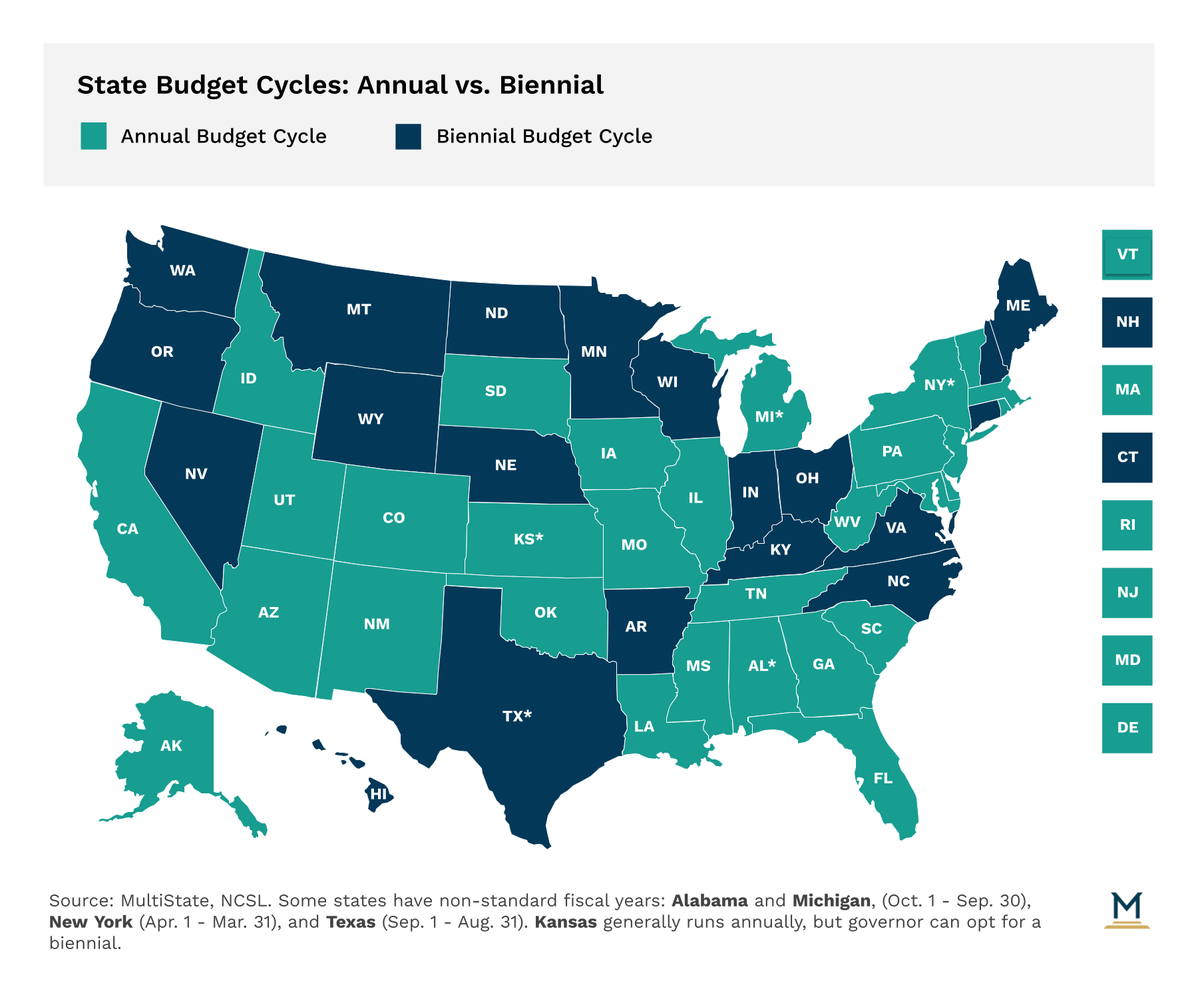
Tax & Budgets
Understanding New York's Budget Process and Amendments
January 21, 2026 | Morgan Scarboro
June 11, 2025 | Jose Perez

Key Takeaways:
According to NASBO and NCSL, a majority of states have not yet enacted a fiscal year 2026 budget. For some states, this is just normal timing (most state fiscal years don’t begin until July 1). For others, reasons vary from uncertainty around federal action, increased state spending, and political ambitions of state executives. We’re taking a look at a few states below.

The Illinois legislature passed a budget on May 31st, minutes before they were scheduled to adjourn. The omnibus bill is about 1,000 pages of tax changes. The biggest corporate provisions include taxing 50% of Global Intangible Low-Taxed Income (GILTI),changing the treatment of addbacks, increasing a telecommunications tax to fund 988 services, and implementing a tax amnesty program. Notably, the bill excludes a digital advertising tax, despite its inclusion in a previous version of the bill. Governor J.B. Pritzker (D) has stated he will sign the budget, which is likely to take place in time for the July 1, 2025 start of the fiscal year. The legislature did not vote to address the mass transit fiscal cliff. However, many expect the legislature to keep working towards a solution when they reconvene.
The two chambers have come to a budget agreement and scheduled conference meetings beginning on June 3rd. Details on the agreement mentions the elimination of the business rent tax, a permanent sales tax exemption, and debt reductions. However, no mention is made of sales tax reductions and property tax relief, which were sticking points between Governor Ron DeSantis (R) and House Speaker Daniel Perez (R).a
After failing to come to a budget agreement and three weeks of contentious negotiations, Minnesota was able to pass a $66 billion budget. The budget lowers the state’s projected budget deficit from $6 billion to $1.9 billion. HF 9 includes repealing a sales tax exemption for electricity used by data centers, amends sales tax remittance for the month of June, and extends the state’s film production tax credit to 2031. The bill now moves on to Governor Tim Waltz’s desk for signature.
The Golden State is scheduled to adjourn on September 12, giving lawmakers plenty of time to negotiate their budget. However, recent revenue projections have yielded a more challenging outlook than anticipated. Governor Gavin Newsom (D) released the May Revision to his proposed budget on May 14, which is crafted to mitigate the state’s $12 billion shortfall. The governor blames the federal government’s tariff policy, which has resulted in stock market declines, depressed consumer confidence, and inflation fears. The Legislative Analyst Office (LAO) largely agrees with the Governor’s outlook, estimating that deficits range from $10 billion to $12 billion.Despite the deteriorating outlook, the governor does not include additional tax provisions from what he originally proposed in January. However, the legislature may strike a different tone.
As of now, North Carolina’s legislative chambers passed their own version of the budget and the bill is currently in conference committee to develop a compromise. Points of tension between the two bills are a back-to-school sales tax holiday proposed by the House and differing approaches to income tax cuts. Senate republicans endorse more aggressive cuts. Budget analysts have warned that further cuts could lead to reduced revenues, putting the state into deficit spending as soon as next year. Senate President Phil Berger (R) expressed skepticism over such concerns, believing that the state’s rapid growth will yield additional tax revenue. Complicating matters is the reduced revenue that forecasters are expecting for the upcoming fiscal year. Governor Josh Stein (D) has used the announcement to discourage further tax cuts.
Arizona lawmakers are working behind the scenes negotiating a budget, a process that has been moving slowly for some time. Among the reasons for budget inaction include uncertainty regarding state revenue projections, which were drawn down in mid-April due to recession fears. Not much action has occurred since March when the governor updated her proposed budget. The House is scheduled to return on June 4, and it's up to Senate President Warren Peterson (R) to call senators back. The state has until June 30 to enact a budget or else face a government shutdown.
Tax policy can be one of the most challenging areas for government affairs executives. MultiState’s team understands the issues, knows the key players, and helps you effectively navigate and engage. We offer a customized, strategic solution to help you develop and execute a proactive multistate tax legislative agenda. Learn more about our Tax Policy Practice.

January 21, 2026 | Morgan Scarboro

January 6, 2026 | Morgan Scarboro
-000055-400px.jpeg)
October 8, 2025 | Abbie Telgenhof, Morgan Scarboro